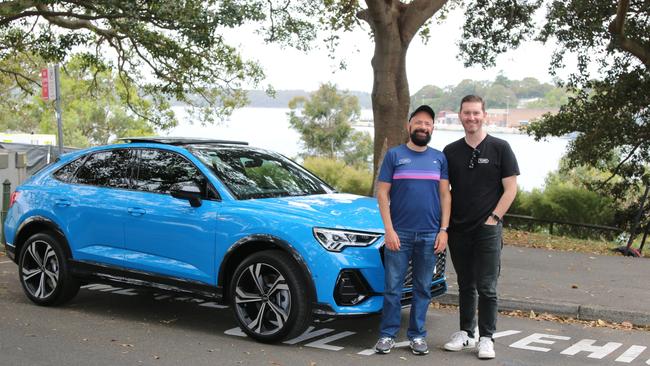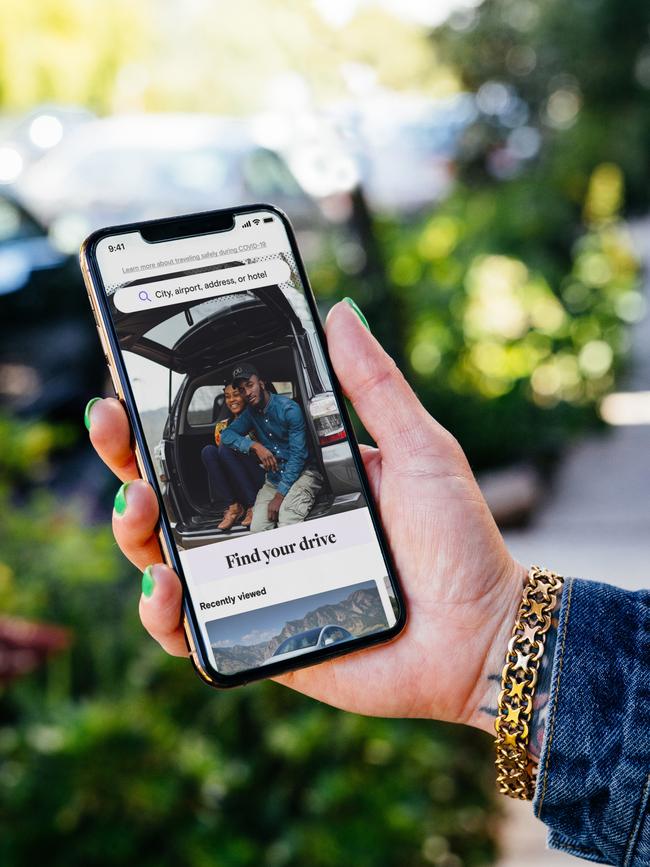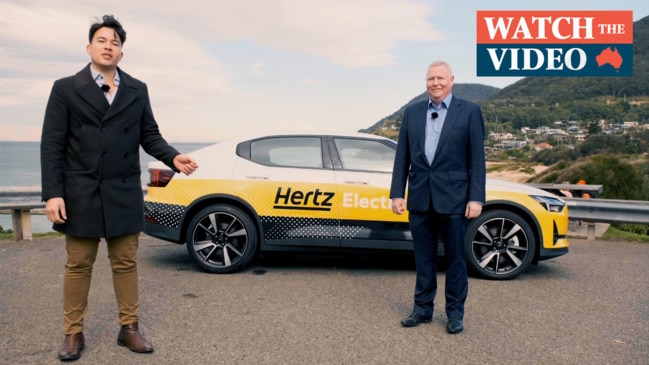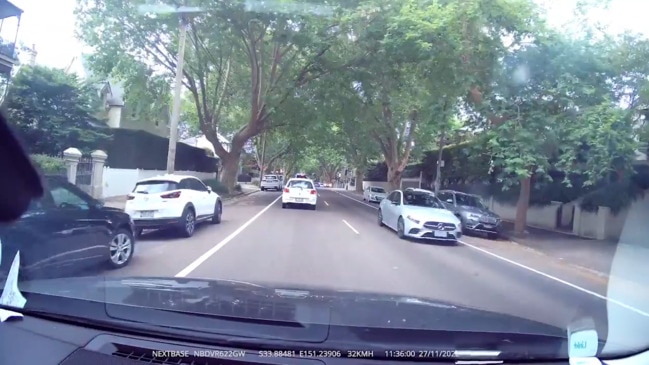US carshare operator Turo confident amid Deliveroo, Voly collapses
The chief executive of US carshare giant Turo is confident he’ll be able to get his carshare business off the ground in Australia, as he prepares to take on Uber.

The chief executive of US carshare giant Turo is confident he’ll be able to get his carshare business off the ground in Australia, as he prepares to take on Uber.
The recent collapse of Deliveroo and Voly, both of which competed with Turo’s main rival Uber, “doesn’t scare” Andre Haddad, who was visiting Sydney for Turo’s launch on Wednesday.
Mr Haddad said he’d been studying players in the adjacent markets for some time and he still saw his Australian arm becoming profitable within three years as he signs up vehicles to join his global fleet of 270,000.

“It is a particularly auspicious time for us to start now in Australia as I’ve read about the rental car crunch, the inflated prices for cars and the challenging availability of rental cars in the Australian market,” he said.
“We’re hopeful that the launch of Turo in Australia will provide consumers with better options, or certainly more options at the least.”
Mr Haddad said the primary difference between his business and the likes of Deliveroo and Voly was that it didn’t “monetise labour”.
“The food delivery and delivery models I think are somewhat fragile from a unit economics standpoint. The big players are barely profitable so it makes it harder for the smaller players to be profitable,” he said. “Those two models are really based on the notion of enabling flexible labour to deliver services. In our case, we’re quite different, we’re all about monetising existing assets, not really monetising labour.”
As part of the launch, the company’s local chief Tim Rossanis, a former Uber exec, has listed his own car on the platform, a “turbo blue” Audi Q3 40 TFSI Quattro S-Line.
Listing your own car on the platform seems to be part of the company culture with Mr Haddad listing several of his vehicles including his Tesla Model 3, Lucid Air, Audi Q7 and two Porsches on Turo’s US platform.

Mr Haddad would not share the number of local vehicles listed at launch on Wednesday.
The Turo app showed listings for a 2019 Tesla Model 3 for $443, a 2022 Tesla Model Y for $1470 over three days and a Mini 3D Hatch for $825 for three days.
The most expensive vehicle appeared to be a Bentley Continental 2013 based in the eastern suburbs which charged $4500 for a three-day rental.
To grow his business, Mr Haddad cited similar plans to Hertz of capitalising on consumer curiosity over electric vehicles with a “try before you buy” approach.
The company in August listed around 1000 Polestar 2s on its platform, forming part of a 65,000-vehicle purchase. At the time, renting a Polestar 2 in Sydney would cost $189.19 if paid in advance or $212.88 upon arrival.
Turo’s point of different remains that it allows vehicles up to the value of $200,000 on the platform. The business also allowed entrepreneurial types to list multiple vehicles.
“We welcome all different kinds of cars with 1400 makes and models available globally,” Mr Haddad said. “We see ourselves as platform that allows people to build businesses.”
An IBISWorld report said Australia’s carshare market had nine major players who hire about 230 staff. GoGet Carshare had a 64.2 per cent market share, Hertz had 5.2 per cent and other plays made up the meaning 30.6 per cent. Author Darcy Gannon projected a 2.2 per cent revenue growth over the next five years to $42.6m. Profit over the past five years was down 3.2 per cent.
More Coverage








To join the conversation, please log in. Don't have an account? Register
Join the conversation, you are commenting as Logout